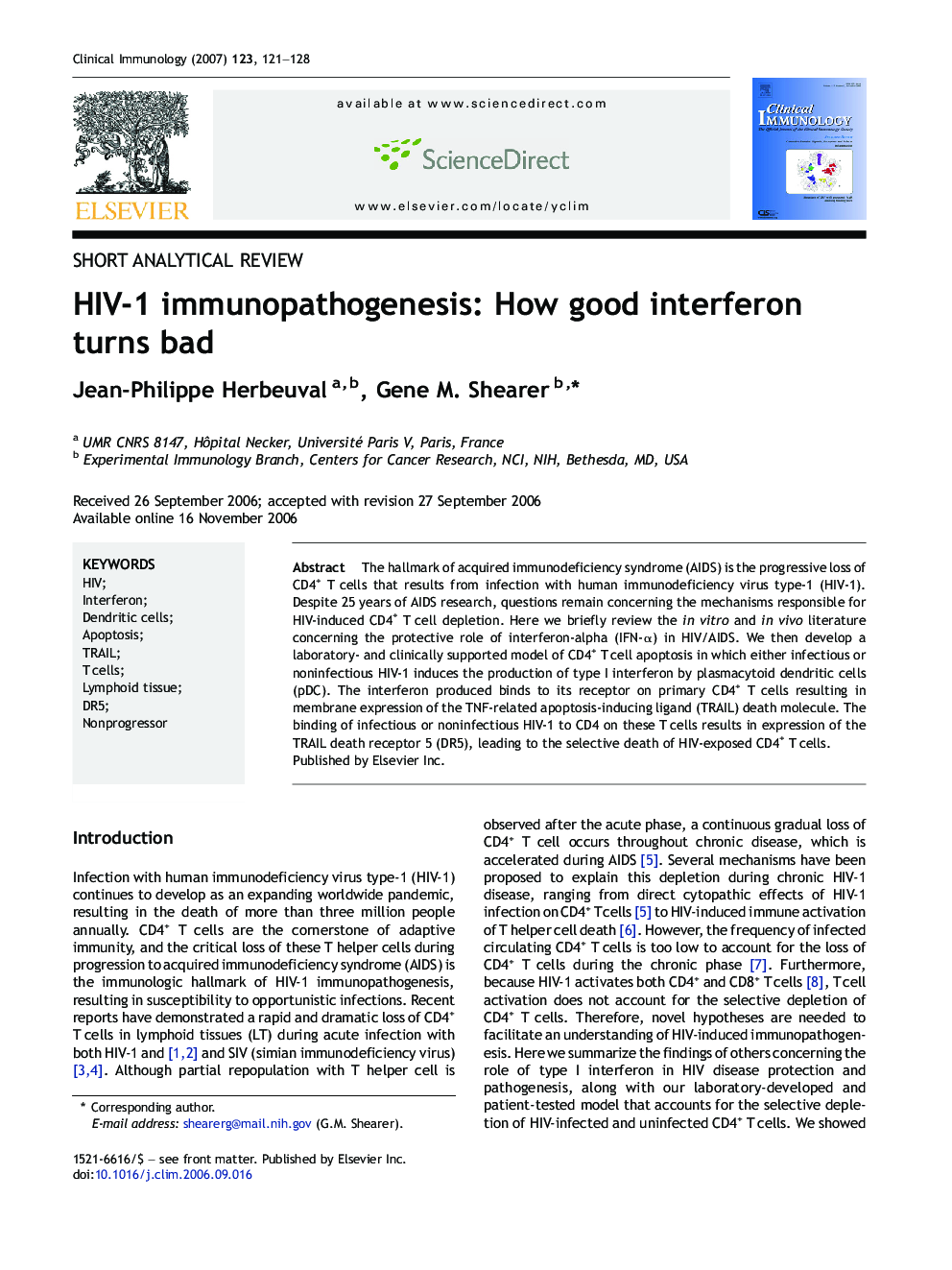| Article ID | Journal | Published Year | Pages | File Type |
|---|---|---|---|---|
| 3258491 | Clinical Immunology | 2007 | 8 Pages |
The hallmark of acquired immunodeficiency syndrome (AIDS) is the progressive loss of CD4+ T cells that results from infection with human immunodeficiency virus type-1 (HIV-1). Despite 25 years of AIDS research, questions remain concerning the mechanisms responsible for HIV-induced CD4+ T cell depletion. Here we briefly review the in vitro and in vivo literature concerning the protective role of interferon-alpha (IFN-α) in HIV/AIDS. We then develop a laboratory- and clinically supported model of CD4+ T cell apoptosis in which either infectious or noninfectious HIV-1 induces the production of type I interferon by plasmacytoid dendritic cells (pDC). The interferon produced binds to its receptor on primary CD4+ T cells resulting in membrane expression of the TNF-related apoptosis-inducing ligand (TRAIL) death molecule. The binding of infectious or noninfectious HIV-1 to CD4 on these T cells results in expression of the TRAIL death receptor 5 (DR5), leading to the selective death of HIV-exposed CD4+ T cells.
